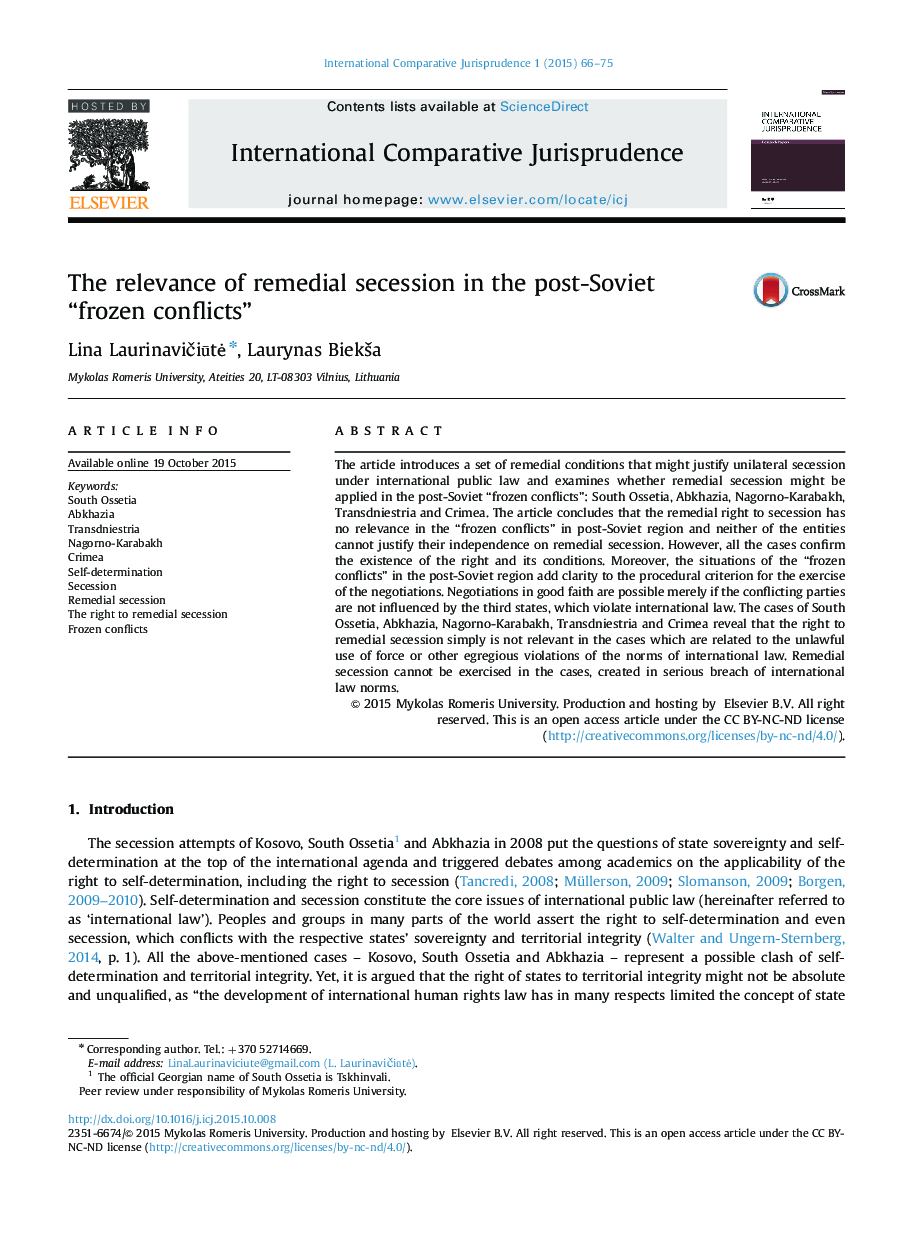| Article ID | Journal | Published Year | Pages | File Type |
|---|---|---|---|---|
| 1097801 | International Comparative Jurisprudence | 2015 | 10 Pages |
The article introduces a set of remedial conditions that might justify unilateral secession under international public law and examines whether remedial secession might be applied in the post-Soviet “frozen conflicts”: South Ossetia, Abkhazia, Nagorno-Karabakh, Transdniestria and Crimea. The article concludes that the remedial right to secession has no relevance in the “frozen conflicts” in post-Soviet region and neither of the entities cannot justify their independence on remedial secession. However, all the cases confirm the existence of the right and its conditions. Moreover, the situations of the “frozen conflicts” in the post-Soviet region add clarity to the procedural criterion for the exercise of the negotiations. Negotiations in good faith are possible merely if the conflicting parties are not influenced by the third states, which violate international law. The cases of South Ossetia, Abkhazia, Nagorno-Karabakh, Transdniestria and Crimea reveal that the right to remedial secession simply is not relevant in the cases which are related to the unlawful use of force or other egregious violations of the norms of international law. Remedial secession cannot be exercised in the cases, created in serious breach of international law norms.
